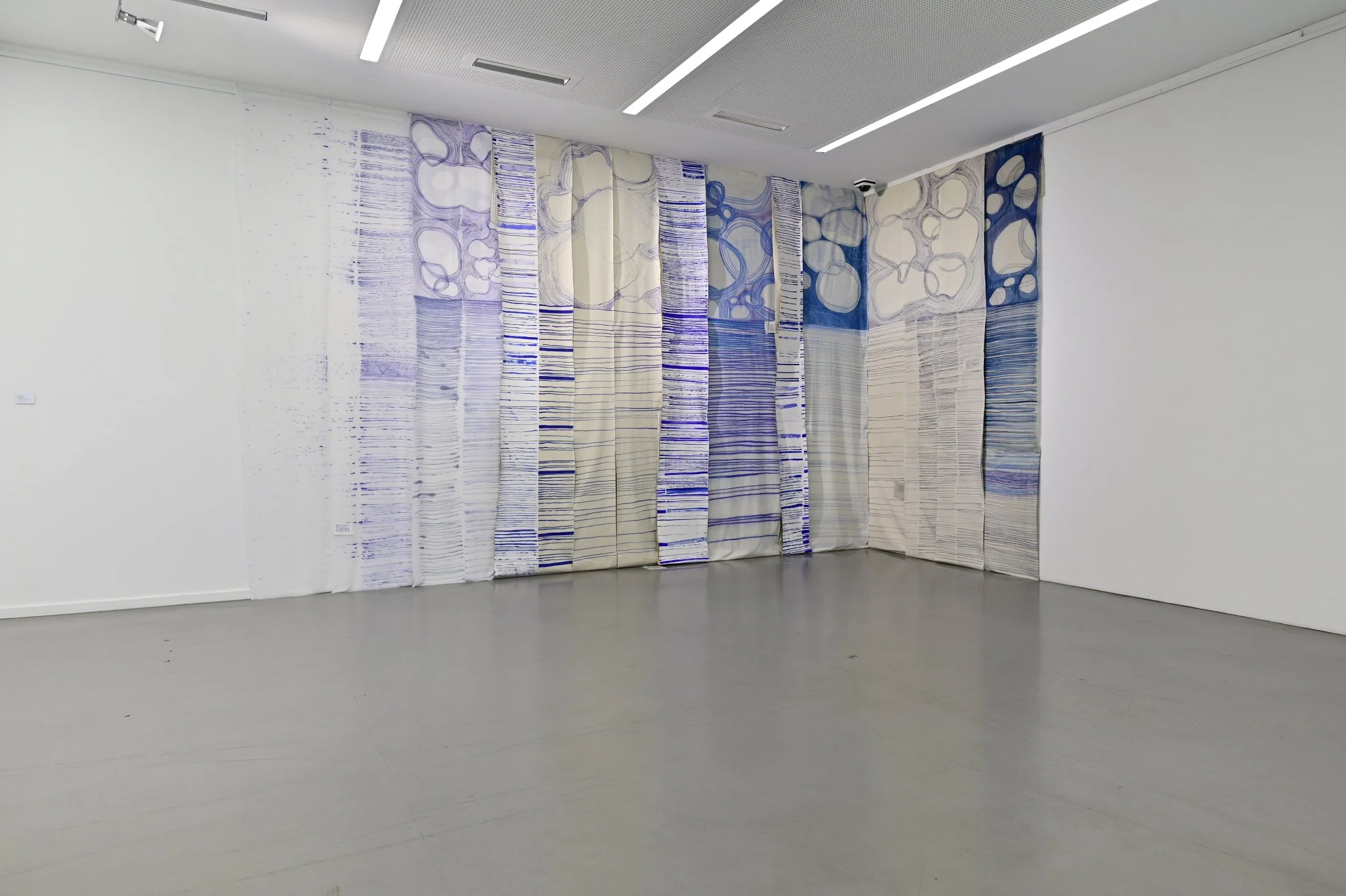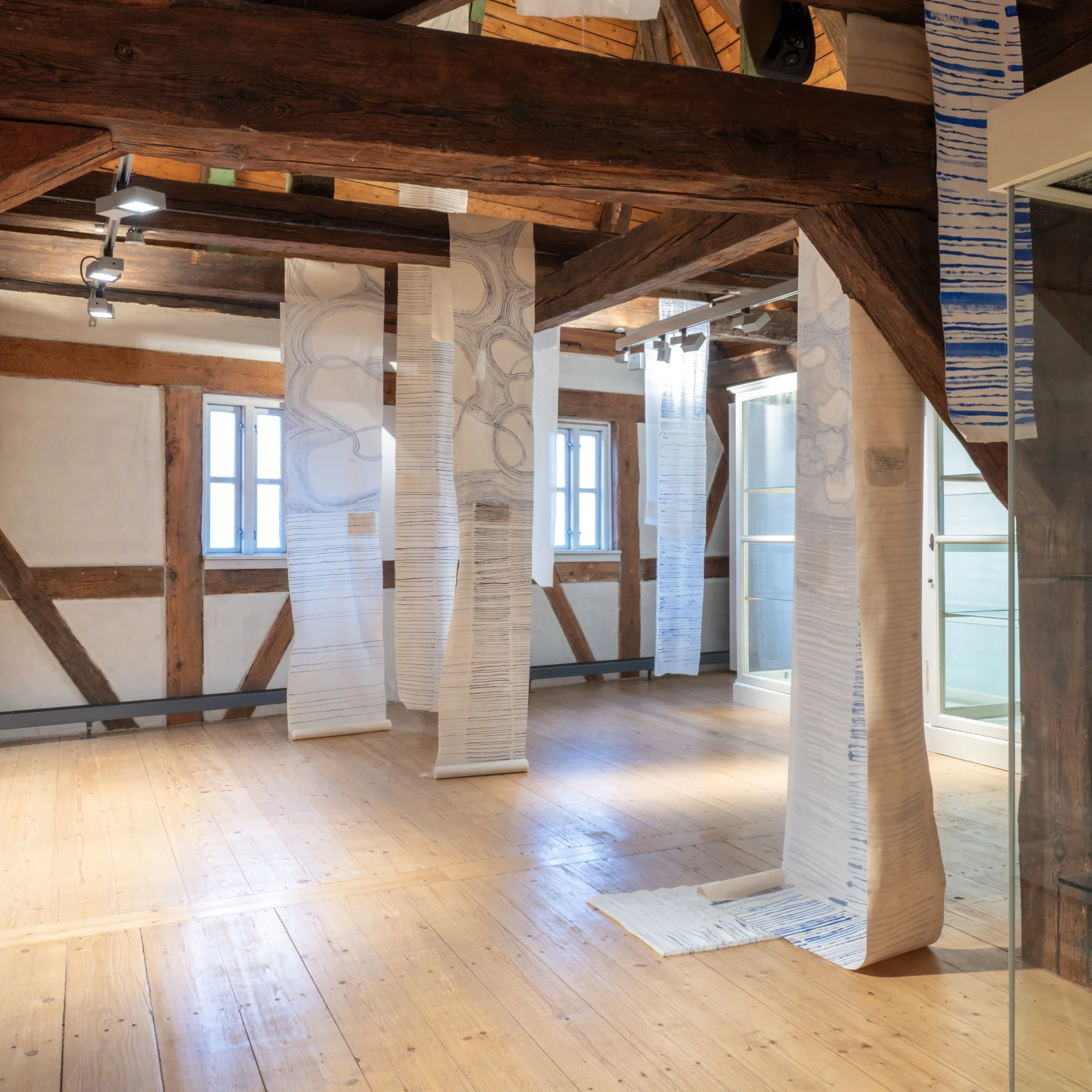
Exodus III
Exodus III continues Laufer’s exploration of her father’s fragmented childhood memories of the 1947 refugee ship Exodus. Suspended painted scrolls evoke a narrative that unfolds gradually, revealing and withholding in equal measure. The work becomes a threshold space, shaped by the interplay of image, text, and the shifting rhythms of memory.


Exodus II
Exodus II unfolds as a distant seascape, stretched into a horizon. The abstracted sea—a place of passage, danger, and hope—becomes a symbol of the no-longer-here and not-yet-there: an uncertain space between connection and separation. Partially hidden text fragments—memories of Laufer’s father as a child refugee aboard the Exodus 1947—invite close attention.

Exodus I
Exodus traces the fragile, shifting nature of memory through a fragmented seascape — a threshold between hope and uncertainty, escape and entrapment. Drawing on the childhood recollections of Laufer’s father, a refugee aboard the Exodus 1947, the work moves between personal memory and collective narratives, where even the smallest recollections carry the weight of history